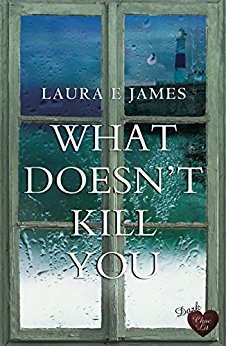I have to admit to being a NaNoWriMo sceptic. Even their slogan – the world needs your novel – raises a wry smile. Does it? Really? Given the size of the ‘to be read’ piles of just about everyone I know, it probably doesn’t.
But this year – the scheme’s 19th – I couldn’t ignore it. Writers I respect are taking part so was I missing something? The goal is to write a 50,000 word novel in 30 days with help, support and motivation from the calculators and community on the NaNoWriMo website.
A better slogan for the programme – and one which has come up more than once in conversations with authors taking part – would be ‘don’t get it right, get it written.’ Now that, I can relate to. As RNA New Writers’ Scheme member and veteran of NaNos since 2014 Jan Baynham says: “In 2014 my attempts to write my first novel were taking an age. When all the publicity for NaNo came around, I thought I’d give it a go and set myself a goal of getting up a couple of hours earlier than normal and to try and write every day. Having NaNo buddies was a wonderful support. Seeing the tally of words written each day was another huge motivator. Apart from checking through what I’d written each day, I left serious editing until after NaNo was over. In 2014, I exceeded the 50,000 word goal by a couple of thousand. Did I make that editing stage harder by just writing non-stop for the whole of November? I don’t know but NaNo was one way for me to complete the initial draft of my first ever novel.”
Fellow RNA NWS member Kirsten Hesketh agrees and is making good progress with her first NaNo: “21 days and 34k words and still going strong. I made about every mistake going with my first book, faffing around, editing as I wrote and spending hours polishing passages that didn’t made it into the final cut. So Nano has been very helpful for getting the bones of my second novel on paper. I particularly like three things about Nano (1) committing to writing each day rather than trying to fit it around everything else and thereby not doing it at all; (2) not vetting as all as I write which I think has made me a braver writer (3) the camaraderie, support and shared purpose.”
 The camaraderie point is an important one and typical of the writers I know it’s peer motivation rather than peer pressure. Susanna Bavin, author of The Deserter’s Daughter, a saga published by Allison & Busby, has particularly valued this: “What I have specially enjoyed and appreciated is the companionship of a group of online friends. In the November Nano, you can message your buddies through Nano one at a time, so we all got together via Twitter to share one another’s angst.”
The camaraderie point is an important one and typical of the writers I know it’s peer motivation rather than peer pressure. Susanna Bavin, author of The Deserter’s Daughter, a saga published by Allison & Busby, has particularly valued this: “What I have specially enjoyed and appreciated is the companionship of a group of online friends. In the November Nano, you can message your buddies through Nano one at a time, so we all got together via Twitter to share one another’s angst.”
The more I look at NaNo, the more I can see that for some writers support and a target over a limited period of time plays a big part in making it happen. However in 2016 less than 10% of those taking part reached the target. Does that necessarily matter? I leave the last word to Choc Lit author Laura E James: “When I discovered the updates that Nano provide, I smiled. After a couple of days of managing 500 words, as opposed to the 1660 plus required to hit the total, Nano informed me I would finish in January. What did I take from that? The fact I would actually finish. I celebrated. I high-fived my daughter. I’d reached a point where I was in danger of never again completing a project, but to see the statistics in black and white helped restore my faith.”
My thanks go to Jan, Kirsten, Susanna and Laura for sharing their thoughts with me.
janbaynham.blogspot.co.uk
www.susannabavin.co.uk
www.lauraejames.co.uk


